17
ONE SUMMER NIGHT, when my struggles had only begun, Albertine and I were sitting on Big Grandfather’s front porch. We had been spending the summer with Grandfather, in his house. Grandmother had died during the year, and our presence in the house was supposed to cheer Grandfather up, to keep the place from echoing with sorrow and loneliness. We felt that we hadn’t succeeded, and we had become convinced that we couldn’t have succeeded, that we should have known that Grandfather felt the loss of my grandmother too strongly for us to make him forget it for long.
However, of an evening, the three of us would sit on his front porch, on the glider, or in metal chairs that were suspended on springs within metal frames and wheezed when we rocked in them, and I would tell my grandfather stories about things that had happened at work. I was working right down the street, in the boatyard that was once Cap’n Leech’s, then Leech’s son’s, and is now Raskolnikov’s. Crazy and amusing things happened there; crazy things happen wherever pleasure boats are moored near working boats, because people who think that boats are for fun and people who think that boats are for work each think the others are crazy. I was a college student at the time, so of course I thought everyone was crazy. My grandfather and Albertine and I would sit and rock and drink gin-and-tonics, and I’d tell my stories, and sometimes I would make Grandfather laugh. When I made him laugh, I’d add to what I had told him, embellish, improvise, mimic, burlesque to make him laugh again, because, after all, I was supposed to try to cheer him up.
On that night, it had grown late, and the three of us had grown quiet. We would be going upstairs to bed soon. Out of the darkness, Grandfather asked me what I wanted to do with myself. I told him what I had told only Albertine before, that I wanted to write a book, and in the confessional safety of the darkness, the security of this familiar setting and sympathetic audience, I felt myself ready to try to tell him all about the book, the impossibly big book, that I wanted to write.
“That’s good,” he said, before I had a chance to say any of that. “That’s very good. Make sure that there’s a laugh on every page.”
I stopped myself. I took a sudden cheap pity on him, who didn’t need or want it. Instead of telling him anything about the book I wanted to write, I indulged him—or so I thought. I’m not sure now exactly how I answered him, but I must have said something like, “That’s an interesting idea.”
And in the darkness I smiled to myself a shameful, condescending smile, and decided that it would be too difficult to explain to Grandfather why I didn’t want laughs, why laughing seemed to me reprehensible in this miserable world.
In truth, I learned only much later, explaining would have been too difficult because I didn’t understand that the main reason I considered laughter inappropriate was that my circle of serious friends considered it so, walked with their eyes down, their heads bowed by the misery of life. To expect happiness was insane; to want happiness was arrogant and selfish. I had come to regard having a good time, laughing without irony, singing anything but the blues, dancing of any sort as childishly foolish, betrayals of one’s unwillingness or inability to face up to the horror that is Life. To indulge in any of the foregoing whoopee, I had to be drunk, but my drinking, even if it led to laughing, singing, and dancing, was not of the variety that makes a young suburban matron, leading her grinning husband to the door, wonder why she wasted the money having her hair done for this terrible night, makes her turn to her hosts and say, “He thinks he has to drink to have a good time. I’m sorry about the tray of glasses.” No, it was the variety that makes a dark-eyed model stub out her Camel and say to her hosts, before she drags the young painter or poet or sculptor or playwright or filmmaker or novelist off, “Only bourbon dulls his pain.”
I couldn’t have explained to Grandfather then that I wanted the respect of all those very serious people, people for whom it was an axiom that no serious thought could lead to laughter, real laughter, and since I couldn’t explain, I yawned and said, “Are you ready for bed, Al?”
Albertine and I went up to bed, and when we got in and pulled the sheet over us and lay quietly in the dark, I heard Grandfather on the porch, rocking his chair and making the springs wheeze, tapping his foot, and whistling the tune to “Rarotonga,” and then, suddenly, loudly, he began to sing:
Come on, honey, come with me
Sail away, across the sea
To Rarotonga,
Where the nights are longa
And our love will grow much stronga.
Oh, honey, won’t you come alonga,
Across the sea
To Rarotonga—
With me?
A neighbor slammed her window down, as she had done on another evening, when Albertine and I had stayed on the porch too late with friends and I had begun to talk too loudly about the nature of things. Grandfather stopped singing, and I heard him come into the house. In a little while, when he came upstairs, I heard him chuckling, and so ignorant was I of the way life really is that I thought his sorrow must have driven him mad. I didn’t understand at all that the memories accumulated during years of happiness could weigh enough to balance so large a loss, or that the mind will sometimes find a way to free the heart from pain.
In Topical Guide 203, Mark Dorset considers Tears and Laughter; Sorrow and Solace; and Shangri-La; Fantasy Land; Oz; Neverland; Raratonga from this episode.
Have you missed an episode or two or several?
You can begin reading at the beginning or you can catch up by visiting the archive or consulting the index to the Topical Guide.
You can listen to the episodes on the Personal History podcast. Begin at the beginning or scroll through the episodes to find what you’ve missed.
You can ensure that you never miss a future issue by getting a free subscription. (You can help support the work by choosing a paid subscription instead.)
At Apple Books you can download free eBooks of “My Mother Takes a Tumble,” “Do Clams Bite?,” “Life on the Bolotomy,” “The Static of the Spheres,” “The Fox and the Clam,” “The Girl with the White Fur Muff,” “Take the Long Way Home,” “Call Me Larry,” and “The Young Tars,” the nine novellas in Little Follies, and Little Follies itself, which will give you all the novellas in one handy package.
You’ll find an overview of the entire work in An Introduction to The Personal History, Adventures, Experiences & Observations of Peter Leroy. It’s a pdf document.





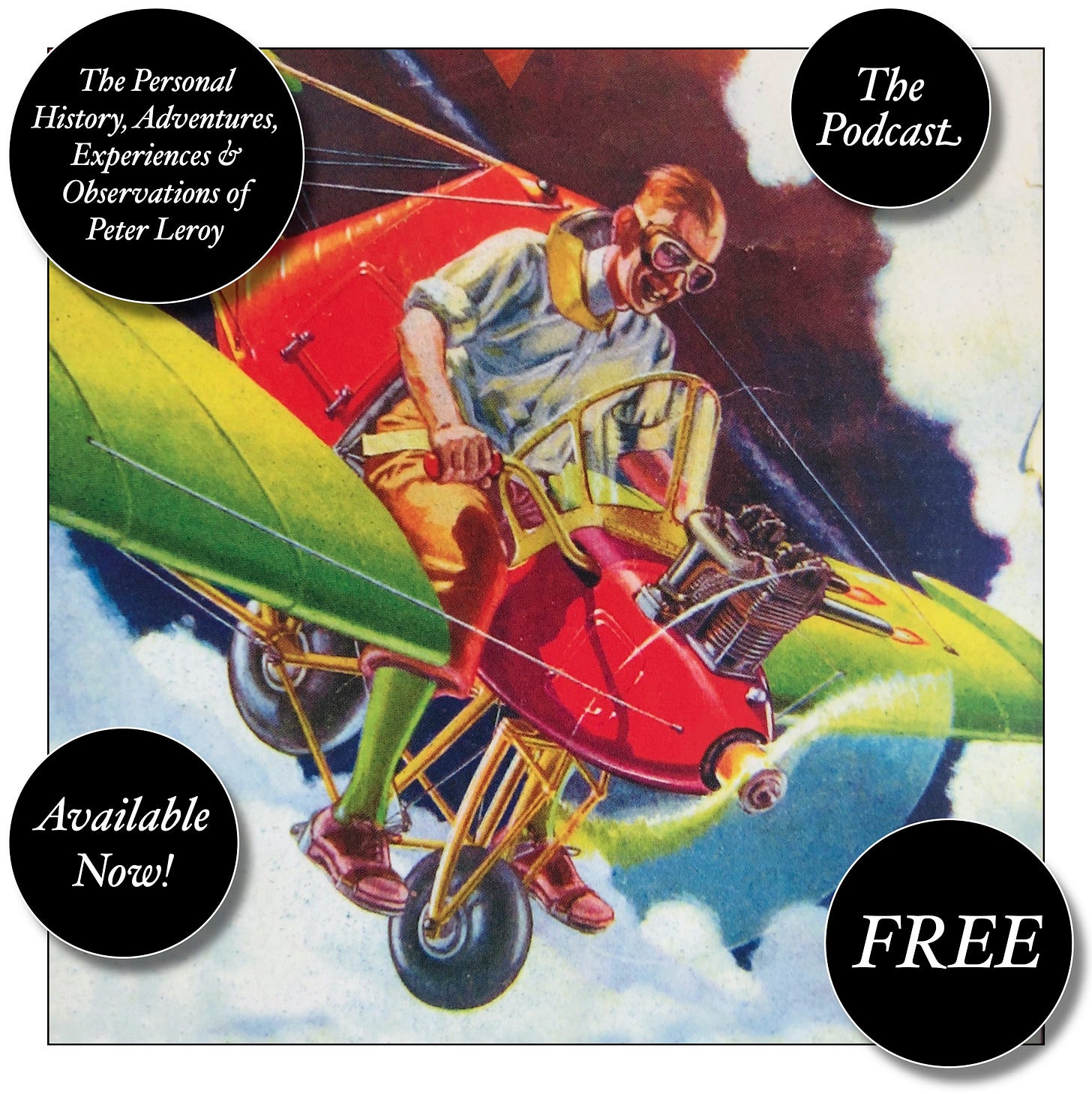


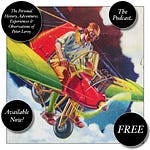



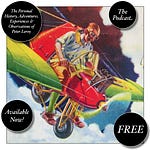
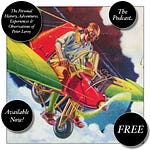
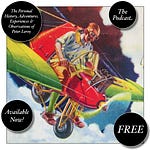
Share this post